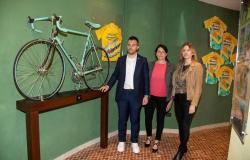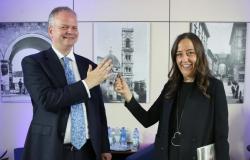Like many other European countries, Italy has an economic backbone made up of family businesses or SMEs. Cooperation is intense in artisanal sectors such as textiles, footwear and ceramics, but companies are also starting to look for each other in the automotive industry. Compared to Germany or Belgium, sharing technical knowledge, Sharing Brainpower, is still in its infancy. But giant strides have been made.
The European Commission aims to make governments, businesses and knowledge institutes work closely together on the three global transitions towards sustainable energy sources, the reduction of CO2 emissions and the formation of an industrial internet. The Commission calls for the formation of alliances to address them simultaneously, using all available ideas and the latest technologies. Knowledge sharing is an integral part of this approach. In this context, for example, the European Digital Innovation Hubs project was launched.
Knowledge sharing in Italy is not yet at the level of that in Germany or the Netherlands. But “brain sharing” is certainly catching up. Many universities are moving away from their long ivory tower history and are actively looking for ways to make the knowledge they gain more profitable. Because industry and technology sectors are hungry for proven methods, they are ideal places to stimulate brain sharing.
Let’s take electric transport for example. This issue is high on the agenda in Brussels. The EC has prioritized building a pan-European battery production network. Stellantis opened a testing facility in Turin; Faam has expanded a battery factory in Teverola, with financial support from the Commission. In Milan, start-up Green Energy Storage appears to be off to a good start, producing sustainable energy storage through hydrogen.
Europe also wants to increase its chip production; the EC then established the Chip Act, supported with over 50 billion euros. Italian-French STMicroelectronics has expanded its Catania plant with 2 billion euros in support from Brussels. The company collaborates with the local university, even if the research takes place in Grenoble. In the North, Singapore’s Silicon Box aims to build a $3.2 billion chip factory, for which financial support has also been granted.
Of particular note are the eight Competence Centers that have been established throughout Italy and which focus on sharing knowledge and experience on the topics of Industry 4.0 and the “Factory of the Future”. Over 30 universities, 20 public bodies and numerous companies (partly SMEs) collaborate here, teaching and learning through live demonstrations of robotics, additive manufacturing, cyber-security and Big Data, to name a few topics.
To encourage the creation of alliances, the EC leaves the possibility to Member States to give their own interpretation of Sharing Brainpower. In my opinion, this leads to three types of approaches.
– The first is the “Nordic approach”, where the government is not in the spotlight, but provides a clear vision, for example of sustainability. Companies and knowledge institutions can trust this long-term commitment and build ecosystems around it.
– the second is the “Paris connection”, in which the government openly leads. There is close consultation about who works together with whom. State aid is widely available. If necessary, corrective measures are taken.
– Finally, there is the “Berlin Bridge”, a federative tradition of cooperation. Knowledge and consultation are central; if the parties clash, the chancellor is the arbiter. The Industry 4.0 initiative is a good example of this model.
Which path is best to take? The EC does not have a preferred approach. Rather, it is like an orchestra conductor who wants to let the different sections express themselves independently, focusing on harmony. It will be interesting to see which type of approach best suits Italy.
Perhaps with the help of the EC and neighboring countries, Italy is about to put Sharing Brainpower on its map, also in view of the October 2023 meeting between Italy, Germany and France on the topic of AI and their intention to collaborate, simplify procedures and support existing knowledge and information networks. Its many family businesses and SMEs will benefit, but ultimately also all European SMEs.
Fred Bakker was editor and publisher of Het Financieele Dagblad, the Dutch equivalent of the Financial Times. Today he writes about the intersection of technology, innovation and governance strategy. His new book is Unleashing the Power of European Innovation.
Posting time: 06/13/2024 1.56pm
Last update: 06/13/2024 2.16pm




